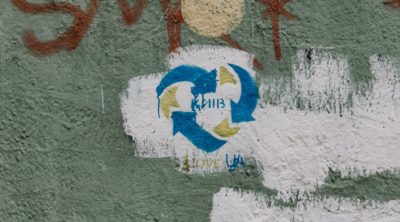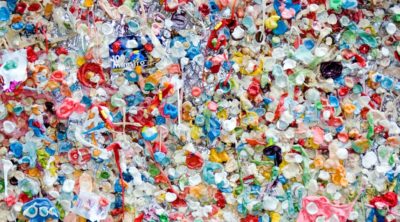More and more cities are implementing mandatory recycling programs. Still, a lot of people don’t understand what plastics can be recycled, how they need to recycle them, and which ones can’t be recycled at all.
While every town and city likely has its process in place, there are still some basic ways to tell how to treat plastic. Each type of plastic comes with a symbol that shows you how to recycle it and what can be done with it.
We break it down so that you never have to wonder what to do with a piece of plastic again.
Recycling Symbol #1
PET or PETE (polyethylene terephthalate) is one of the most common recyclable plastics. Generally, you’ll find it in the form of plastic bottles like soft drinks, beer bottles, mouthwash bottles, salad dressing, and vegetable oil bottles.
You can recycle this in-demand plastic by fully emptying it and cleaning it. Separate the bottle from the cap, which cannot be recycled.
Recycling Symbol #2
Reserved for HDPE (high-density polyethylene), another highly recyclable material, you’ll find this in the form of milk jugs, household cleaners, detergent, shampoo, and conditioner, and even cereal box liners.
You can throw these in with your curbside recycle days or at a local recycling facility.
Recycling Symbol #3
PVC (polyvinyl chloride) or V (vinyl) is slightly more toxic than the above options, so you need to be a bit more careful when recycling them, if at all. You’ll find them in blister packaging, wire jacketing, siding, and windows.
Some plastic lumber makers will take these materials, or you’ll need to dispose of them with your local waste management (trash) provider.
Recycling Symbol #4
LDPE (low-density polyethylene) can be used for many applications but unfortunately, is not typically accepted into most recycling programs. This plastic comes in squeezable bottles, frozen food, dry cleaning and shopping bags, and even some furniture.
You can return plastic bags to stores if they’re willing to reuse them. Otherwise, these materials will need to be recycled with community programs or in your trash pick-up. There is no curbside option.
Recycling Symbol #5
PP (polypropylene) is becoming more accepted by recycling programs but still isn’t widely accepted. Your yogurt containers, syrup and medicine bottles, caps, and straws count as this kind of material.
To recycle it, you’ll want to check and see if your curbside pickup will take it. Clean it out and toss it in your recycling bin if so. Otherwise, you might have to throw it in the trash or take it to a community center.
Recycling Symbol #6
PS (polystyrene) is pretty much your typical styrofoam and is classified as a probable carcinogen. That means it’s challenging to recycle and not accepted by most state programs. Egg cartons, meat trays, carry-out containers, and compact disc cases contain this material.
If it’s a rigid type of plastic, you may be able to include it in your curbside pick-up. If it’s styrofoam, you’ll have to toss this in the trash.
Hopefully, this breakdown will help you determine what you can and can’t recycle in the future.


